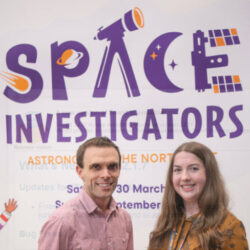Enhancing support for international students in Faculty of Medical Sciences
Dr Alessio Iannetti (FMS) explored how best to support international students—while comparing their needs to those of home students. Guided by student and colleagues feedback, his pilot project suggests practical ways to strengthen support and foster inclusive learning communities.









